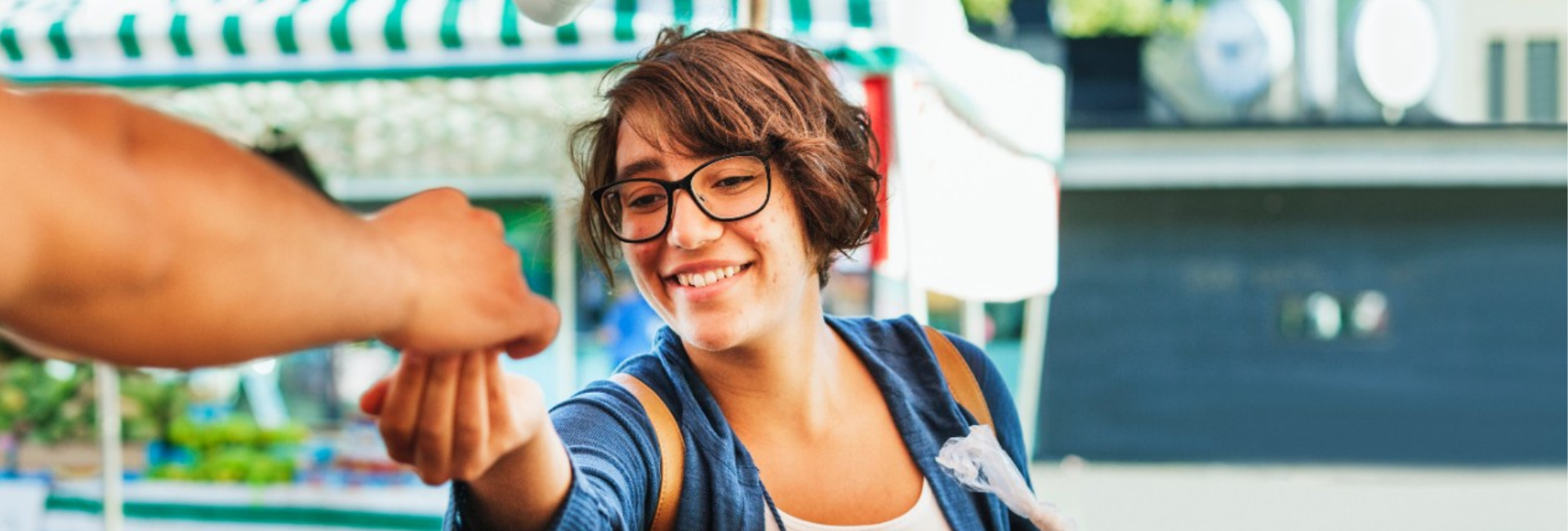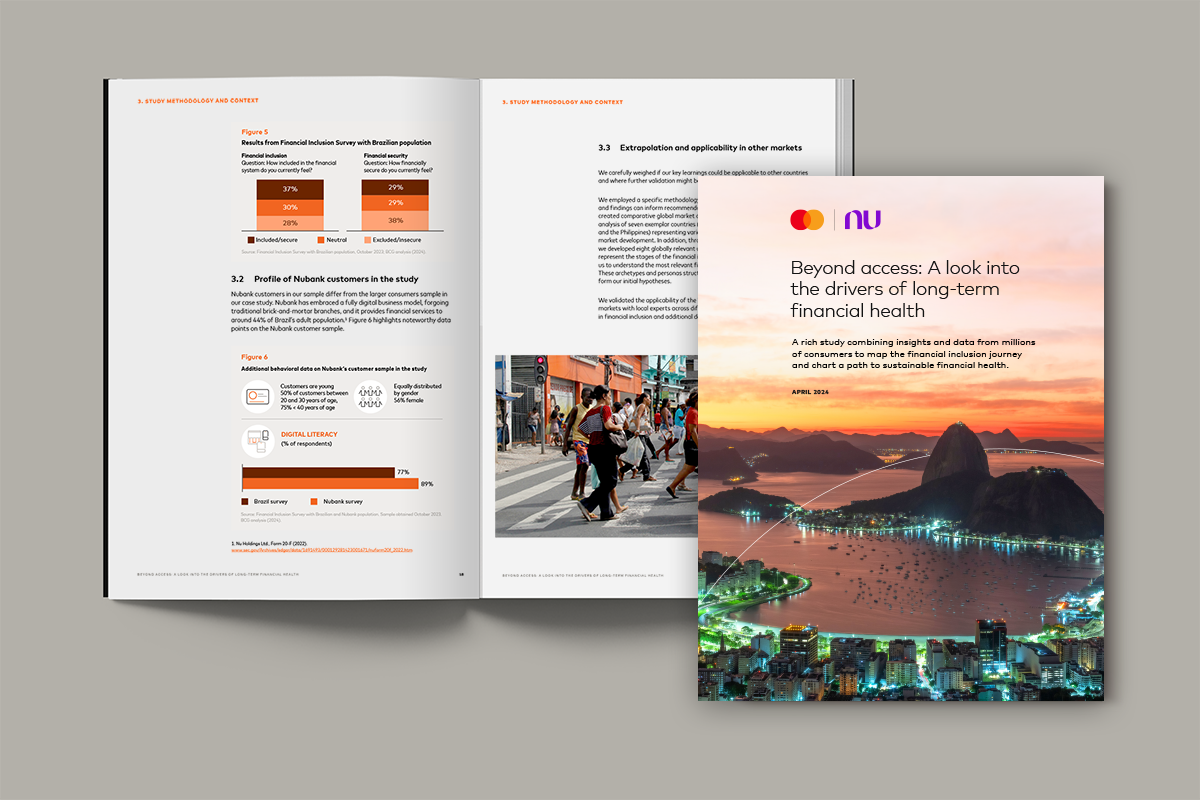When financial access isn’t enough
April 18, 2024 | By Marcelo Tangioni
In a big step forward for financial inclusion, some 75% of the world’s population now has access to banking services, such as debit cards, prepaid cards or real-time payments. Better access to tools means we’re getting closer to creating a digital economy that works for everyone.

At the same time, we face a major barrier to reaching the goal of universal inclusion. Despite having access, many consumers are not utilizing financial services. What’s lacking is the trust they need to fully engage with the financial system and with products that can better their lives.
In a recent study, Mastercard partnered with Brazilian digital financial services platform Nubank to understand exactly why this rise in access hasn’t corresponded with an increase in consumer usage. With just under 220 million people, Brazil is the most populous country in Latin America and the seventh most populous in the world, and it has outpaced much of the continent in terms of financial inclusion, making it a good place to study this journey.
To better understand the challenges, we interviewed and surveyed 2,000 Nubank customers and Brazilian consumers. We also looked at analyses of three years of transactional and behavioral data from over 3.6 million Nubank customers who opened accounts between 2019 and 2021.
The first major takeaway: When consumers use their prepaid cards or real-time payments often, it increases familiarity and trust. Trust breeds more usage, further accelerating people’s inclusion in the financial system. In fact, we found that consistent use of digital payments is a better predictor of financial health than income is.
Second, we found that a good tactic to bring more people into the financial system is to start out small. Making payments with prepaid cards serves as a stepping stone to accessing credit, whether it’s credit cards, personal loans or more advanced financial products like a business loan or investment account.
More than three-quarters (80%) of customers who used a prepaid card used it as their first product, and 67% of these card users went on to access loan products, while 36% went on to make investments. Using cards for daily transactions, rather than big-ticket items, made the biggest impact, because people gradually built up the habit. As with getting into the habit of exercise, slow, manageable and steady tends to stick.
Granted, for some consumers it’s hard to get started. But we found that with a little support, people eventually feel emboldened. Regardless of income level, 60% of Nubank customers moved from having access to financial tools to actually using them within 24 months. For 40% of people, it took only 12 months.
We all — banks, governments, financial service providers and payment technology companies — have a responsibility to build trust and spur more people to use the services they have access to. We do this by creating financial education and digital literacy initiatives that better explain the function and value of digital payment instruments.
At the same time, we need to keep building an infrastructure that helps people transition away from cash. When more micro and small business owners who operate near low-income populations accept digital payments, consumers use their cards more frequently, thus building trust. Digital payments must also be readily available in more everyday situations, such as mass transit.
Financial institutions, banks and fintechs can broaden credit access by removing complexities around engagement and exploring alternative data sources (e.g., on-time rental or utility payments) and faster paths to credit. Finally, banks need to continue to tap into behavioral data to develop solutions for the underserved and prioritize customer resilience and financial education. For example, automated bill payment nudges can encourage healthy financial habits.
This work won’t be easy, but it’s critical. Some 1.4 billion adults worldwide still lack access to banking products, and hundreds of millions more are underbanked. Working together, we can change this, making sure that access truly does equal usage. In the process, more people will become resilient to economic shocks, their communities will be supported, and we should ultimately see a positive impact on global growth.

White paper
Beyond access: A look into the drivers of long-term financial health
A rich study from Mastercard and Nubank combines insights and data from millions of consumers to map the financial inclusion journey and chart a path to sustainable financial health.
Read more